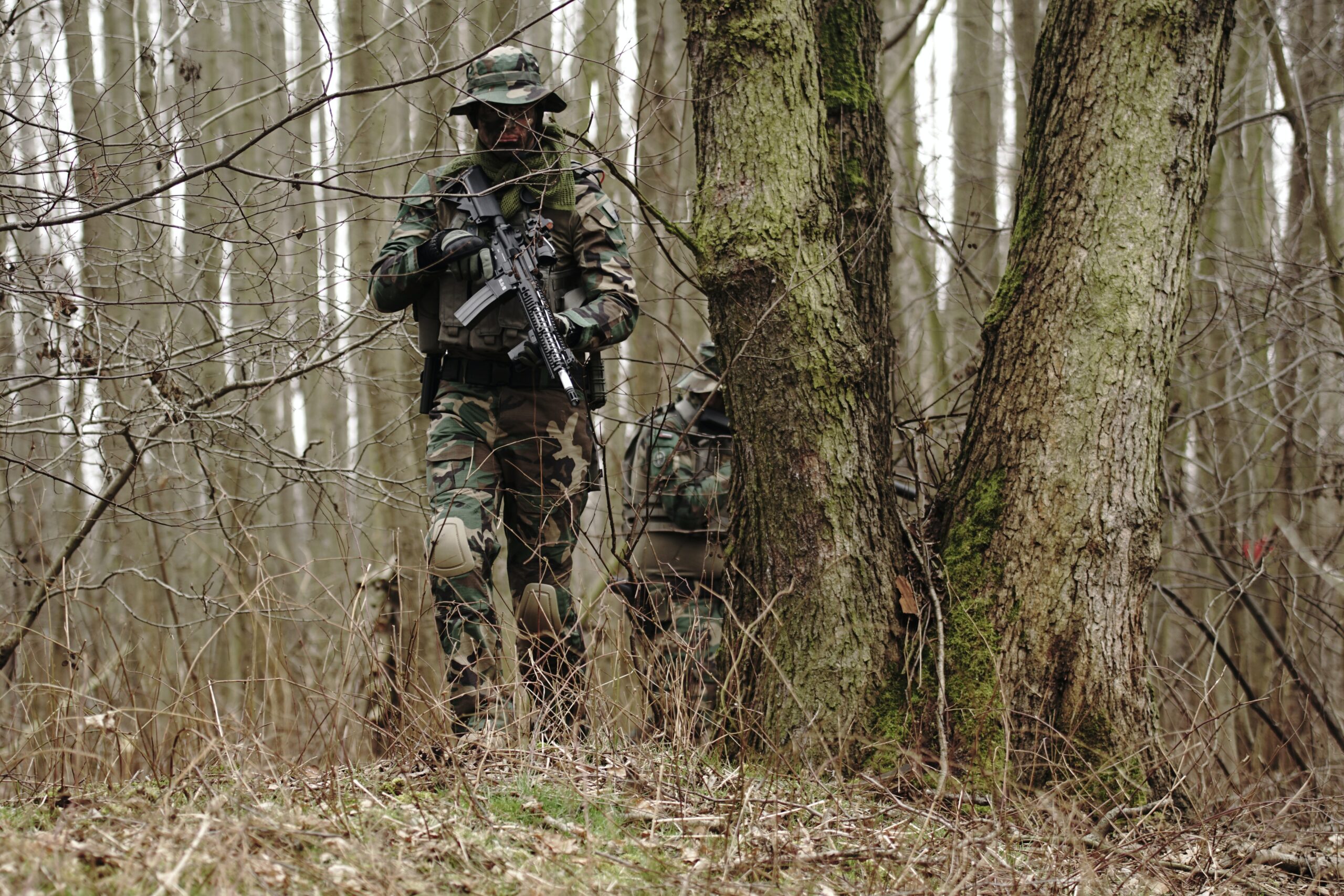Specialty Court for Combat Veterans
As a result of trauma, stress, and other service-related mental health issues, brushes with the criminal justice system can occur from time to time. C-VTC changes the court’s focus from punishment to treatment.

What is Veterans Court?
Combat Veterans Treatment Court helps combat veterans charged with a criminal offense who suffer from addiction or mental illness such as PTSD. Combat Veterans Treatment Court is different than Sobriety Court or Drug Treatment Court. Completing C-VTC results in the dismissal of most criminal charges. Entry and participation in CVTC can reduce or eliminate a potential jail sentence.
The Veterans’ Court specifically focuses on military or former members who have been significantly impacted by their service and have developed either drug or alcohol addictions or mental illnesses generally related to their combat service. Veterans are trained to protect, serve, and fight. Many of them are not used to asking for help. As such, they have peculiar personality traits that often lead them to resist treatment and counseling. Courts realize they must go the extra mile to ensure they can overcome their demons and stay out of trouble.
What courts have Combat Veterans Treatment Court
Both county circuit courts and city district courts might have veterans court programs. These courts must join forces with several other groups, coordinate candidates’ admission, and treat them. These groups include the Michigan Department of Corrections (MDOC), the Department of Veterans Affairs (VA), or similar state or county-based veterans service organizations, a county health department, and a veteran-based funding organization, such as Oakland County’s Warrior Trust Fund.
Who is a candidate for admission to the veteran’s court programs?
At a minimum, a person wanting to get into the veteran’s court must have the following traits:
- A combat veteran (at least 180 days of active armed duty services);
- Drug or alcohol abuse or mental illness generally attributable to combat service;
- Not a safety risk to the public;
- Non-violent offender (no past convictions for a crime involving serious bodily injury or death of a victim).

How Does a Person Get in the Veterans Court?
The first stage of getting into a veteran’s court is usually a devoted and conscientious defense attorney who spots a combat-related issue in their client. Courts must rely, to a large extent, on the defense attorney to call any problems to the court’s attention. A defense attorney notifies the court that a client wants to be considered for the program and coordinates with the court’s probation department to facilitate entry by qualified candidates. The defense lawyer’s skill, experience, and knowledge can be critical in obtaining admittance into C-VTC.
What Does Combat Veterans Treatment Court Entail?
A veteran’s court program consists of five “Phases” of progress over approximately two years and is designed to be flexible to adjust to a particular defendant’s circumstances.
– Phase One (Stabilization)
In Phase One, an admitted defendant is assessed, given an initial diagnosis, and prescribed appropriate treatment and medication if necessary. They begin alcohol and drug testing and are in regular contact with the probation agent, who comes up with a customized treatment goal.
– Phase Two (Early Engagement)
Their probation agent sees participants twice a week and is tested for drugs and alcohol. Participants are referred to appropriate substance abuse treatment providers and support groups. A participant must be completely sober for 30 days to proceed to Phase Three.
Phase Two typically lasts eight (8) weeks. If a participant has any violations of court orders or does not comply with the treatment goals of the provider, several types of consequences are available to the court. A mentor is appointed for a participant in Phase Two.
– Phase Three (Commitment)
Phase Three typically lasts about 20 weeks. Participants in Phase Three are ready to commit to treatment and permanent abstinence. Phase Three’s important aspects are treatment, counseling, and continued close association with the mentor.
– Phase Four (Maintenance)
Phase Four is expected to last approximately 16 weeks, but participants can earn a reduction of this time if they have shown exceptional compliance. Encouragement is one of the main focuses of Phase Five, to give the participant confidence and strength to remain on a healthy path. Participants can benefit from real-world rewards, such as reduced testing, positive encouragement from the judge, and waiver of some fines and costs.
– Phase Five (Reintegration)
To be advanced to Phase Five, a participant must be sober for 90 days, have no violations, be in continued treatment and counseling, and complete all community service. Phase Five can last several months and focuses on re-entry into everyday life for the participant with new coping skills and sobriety. The participant will begin having significantly more freedom in Phase Five.
– Graduation
To graduate from the program after the end of Phase Five, a participant must have 120 days of sobriety, complete all that was ordered, complete 30 hours of community service, and continue attending AA or other support group activities.
If all has gone well, the participant’s original criminal charge will be dismissed. There can be only one dismissal by way of a specialty court (traffic offenses, such as OWI and DUI, cannot be dismissed through CVTC).

An Attorney to Guide You Through the Veterans Court Program
Courts usually rely on a criminal defense attorney to know about the specialty court program and to address it with a judge at the earliest stage of a case. It would be best if you had an attorney who is very familiar with the program and conscientious enough to explain why you would be an appropriate candidate to the judge. Many attorneys do not understand the mechanics of specialty court programs and do not make referrals in even the most obvious cases of need.
The attorneys at LEWIS & DICKSTEIN, P.L.L.C. are very familiar with “sobriety” court, “drug” court, and veterans’ court. We feel it is our responsibility to not only provide a vigorous defense to criminal charges but to take any action necessary to help our clients, especially those who need a little extra help putting traumatizing experiences behind them. If you face charges of any kind, call us for a free consultation with a criminal defense attorney. We will explain how we can help you, no matter the situation, and how we will always have your back.
Call us today at (248) 263-6800 for a free consultation or complete an online Request for Assistance Form. We will contact you promptly and find a way to help you.












